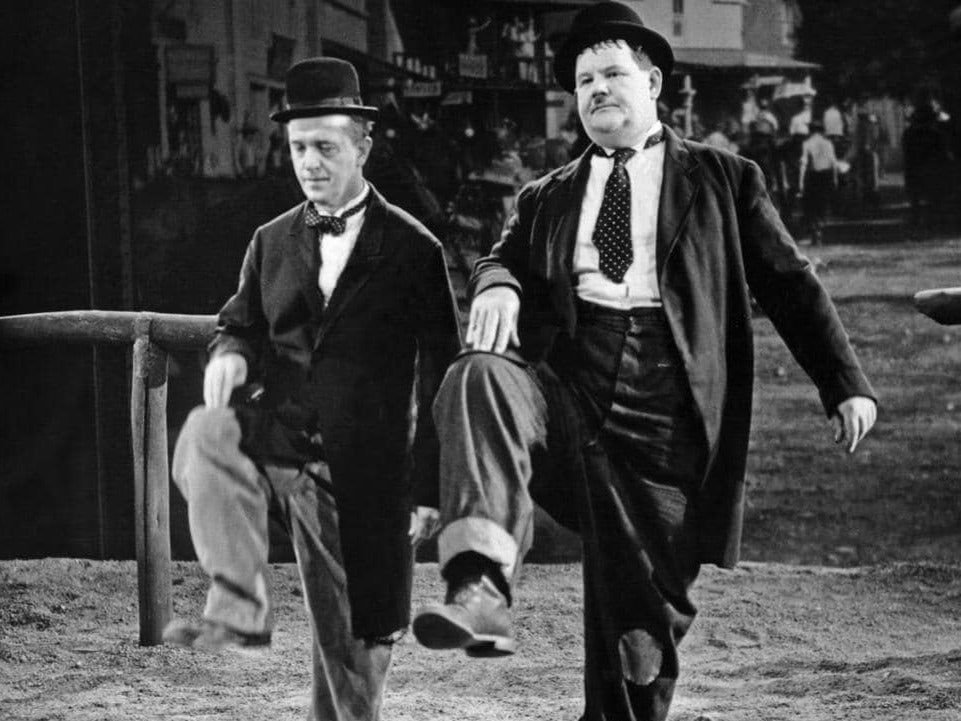

Stan is about to retire from the scene victorious before falling down several flights of steps – something communicated with sound effects rather than viewed. When Stan goes out to receive his beating, Mr Kennedy is felled with an enormous vase wielded by his wife, giving the impression that Stan has bested him in combat. Ollie goes first, but the camera stays with Stan and Mrs Hardy as sound effects tickle our imagination. A battered Mr Kennedy demands that Ollie and Stan take turns to step out into the landing and get beaten up. Somehow her dress is removed and her husband the cop returns (yes, it’s Edgar Kennedy!) and she has to be stuffed into a trunk, and then Mrs Hardy returns wanting to reconcile and the cop turns out to be a cheating hypocrite who is quite rightly beaten up by his own wife. Following two explosions, in which Ollie (unlike the common gerbil) does not learn the consequences of lighting a match in a gas filmed room, Mrs Kennedy returns. Bizarrely, after Stan has failed to lay the table without breaking dishes, Ollie dispatches him to the far far more dangerous job of lighting the gas oven. Well, Mrs Hardy storms out and Ollie claims that he can cook a meal easily the equal of his much vaunted wife’s. Instead of desperately trying to fill dead air, like most movies (especially comic movies) of this early sound era, Laurel and Hardy manage to milk awkward silences for all they are worth.

#VILLAINS IN LAUREL AND HARDY MOVIES MOVIE#
One great thing that this little film realises immediately, is that once a movie can talk, then silence becomes meaningful. When they finally meet Mrs Hardy (the equally wonderful recurring L & H player Mae Busch), of course, they get domestic grief rather than food. Pinter or Ionescu could not have better written anything so deliberately awkward. Look at us, we are having a conversation. What follows is a conversation so stilted and repetitive that it feels like a parody of early sound films and their limitations. On their way across the landing to the Hardy apartment they meet Mrs Kennedy (played by the wonderful recurring L & H player Thelma Todd). This is a marital comedy where Ollie boasts of the lavish meal his wife will be happy to prepare for any friend of his who just shows up unannounced. Nobody exploited the comic possibilities of sound quite so immediately as Laurel and Hardy though. Creative camera work took a bit of a holiday to accommodate sound and films became rather less “realistic” and rather more one-dimensional for a while. It is axiomatic that the earliest sound movies are a lot worse than the silent movies that immediately preceded it, that the technical challenges of early sound recording led to a slowing down of the art of film-making. Imagine not knowing what Laurel and Hardy sound like? Imagine being in a cinema in 1929, watching the brilliantly titled “Unaccustomed as We Are” starring Laurel and Hardy speaking publicly for the first time? Did they sound like you thought they’d sound? Do their voices mess with how you imaged their characters?


 0 kommentar(er)
0 kommentar(er)
